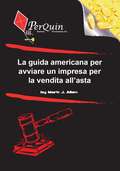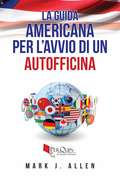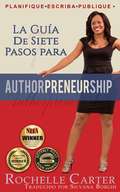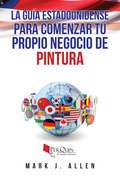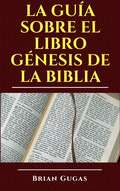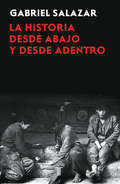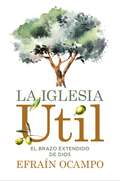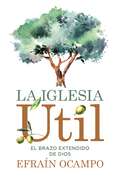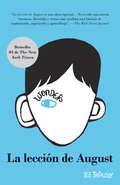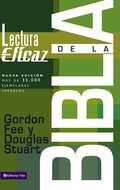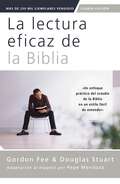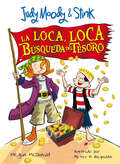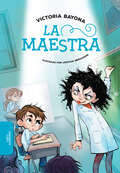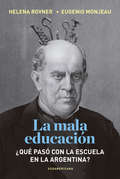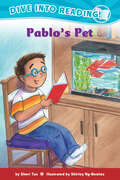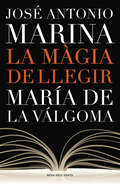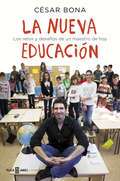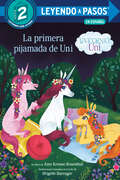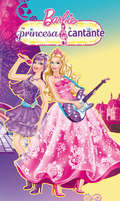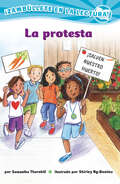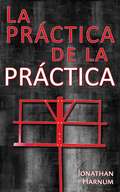- Table View
- List View
La guida americana per avviare un impresa per la vendita all’asta
by Mark J. AllenQuesta guida commerciale americana ti mostrerà le tecniche efficaci utilizzate negli Stati Uniti per creare un’attività redditizia. Come risultato della lettura di questa guida, imparerai suggerimenti e trucchi utilizzati negli Stati Uniti per aiutarti a iniziare la tua attività con un investimento minimo. Imparerai anche quali errori fanno i nuovi imprenditori e come evitarli! Se sei interessato a guadagnare più soldi, velocemente, questa è la guida che fa per te. Oltre a suggerimenti per risparmiare tempo, idee di marketing altamente efficaci e segreti aziendali, avrai anche un piano d'azione passo passo facile da capire che ti toglie la solita insicurezza di iniziare la tua attività
La guida americana per l'avvio di un autofficina
by Mark J. AllenQuesta guida ti mostrerà le tecniche più efficaci per creare un'impresa redditizia dettagliata anche durante questi periodi economici incerti. Leggendo questa guida imparerai suggerimenti e trucchi che ti aiuteranno ad iniziare la tua attività con un investimento minimo. Imparerai a scegliere correttamente la struttura legale della tua azienda. Inoltre imparerai quali errori potresti fare come nuovo imprenditore e come evitarli! Se sei interessato a guadagnare più soldi, in fretta, questa è la guida per te. Oltre ai consigli di risparmio di tempo, idee di marketing estremamente efficaci e segreti aziendali, avrai anche dei consigli passo per passo facili da comprendere. Scegli la strada giusta e diventa capo di te stesso, a partire da oggi!!!
La guía de 7 pasos para Authorpreneurship (Emprendescritores)
by Rochelle Carter Silvana Borghi y María Fernanda TrapaniYa sea que usted esté escribiendo ficción o no ficción, o aspire a la publicación, edición de autor o contratando a una editorial independiente, usted necesita la Guía de 7 pasos para Escriemprndimientos. Esta guía es como un manual que lo guiará a través de cada fase de su carrera de escritor para desarrollar un negocio que genere ingresos regulares, mientras que le permite hacer lo que ama. Con páginas cargadas con información bien organizada, además de consejos prácticos y estrategias, esta guía se convertirá en un recurso de confianza para consultar una y otra vez como su acumulación en su carrera. En un mercado inundado de consejos para los escritores, hay muy pocos libros que fusionan el concepto de ser un autor y un empresario. Esta guía es el primerlibro en tomar realmente a los autores desde la idea de ejecución. El resultado final es una mezcla del espíritu empresarial con la escritura de talento para crear un negocio exitoso, el logro de los objetivos personales y profesionales que todos los escritores aspiran.
La guía estadounidense para comenzar tu propio negocio de pintura
by Mark J. AllenNuestras guías basadas en el sentido común y detalladas paso a paso para llevar a cabo tu propio negocio constituyen la forma más rápida y fácil de tener éxito. No te enseñamos a ser un mejor pintor. En su lugar, te ofrecemos los mejores consejos para emprender nuevos proyectos y llevarlos a cabo… ¡a partir de hoy! Sigue nuestras técnicas de marketing a prueba de fallas y ¡te GARANTIZAMOS EL ÉXITO de tu emprendimiento! Deberás aprender como tomar las mejores oportunidades para hacer crecer tu negocio y dejar contentos a tus clientes. Te mostraremos cómo aprovechar las palabras, incentivar el comentario de boca en boca y así, lograr contratos comerciales muy lucrativos.
La guía sobre el libro Génesis de la Biblia
by Brian Gugas Colette BetancourtEl libro de Génesis es un libro de comienzos: el comienzo del universo, el comienzo del pecado, el comienzo de la necesidad para la misericordia y el perdón de Dios, el comienzo de los diferentes pueblos, el comienzo del pueblo elegido de Dios y el comienzo de la revelación del plan de desarrollo de Dios para la humanidad. Como su nombre lo sugiere, Génesis significa “en el comienzo”. Este es el primer libro y cubre la joya de la creación. Trata temas como: El desarrollo de la nación de Israel Isaac y Jacob La historia de José El diluvio y el arca de Noé y mucho más…
La historia de Maita
by Mario Vargas LlosaNovela ácida y quijotesca, versión lúcida, amarga y tragicómica de los maximalismos revolucionarios y la nostalgia de la epopeya. En Historia de Mayta se cuenta la historia de Alejandro Mayta, militante de un grupo troskista peruano, en el año 1958, cuando el derrumbamiento del imperio colonial francés en Indochina proporcionaba esperanzas y motivos de controversias a los activistas de la clandestinidad. En el relato se narra la investigación de un escritor, fascinado por el carisma de Mayta, cuando ha transcurrido un cuarto de siglo desde que el revolucionario desapareciera. Vargas Llosa moviliza a sus personajes para llegar al espacio donde es posible conocer el verdadero rostro del ser humano. Mediante un relato nutrido de sus declaraciones, expuesto como una epopeya oral, una declaración política, una sátira y un gran documental histórico, Mayta aparecerá como un héroe y un malvado, un místico y un traidor, como enamorado de las mujeres, reprimido romántico, predicador diabólico y doctrinario casto. La novela se convierte así en la crónica de una búsqueda apasionante, anticipo de Lituma en los Andes y La fiesta del chivo.
La historia desde abajo y desde adentro
by Gabriel Salazar VergaraEsta colección de ensayos del premio nacional de historia 2006 viene a dar cuenta del progreso intelectual que ha tenido Gabriel Salazar a lo largo de los últimos treinta y cinco años de escritura sobre la historia y el sentido de su oficio. Gabriel Salazar ha sido durante los últimos treinta años uno de los más relevantes e imprescindibles expositores de la Nueva Historia Social, una corriente de historiadores que procuraron una nueva interpretación de los procesos políticos, económicos y sociales ocurridos en Chile durante los siglos XIX y XX. Con su trabajo superaron los límites de la historiografía conservadora y academicista en sus métodos y enfoques, integrando en sus investigaciones las preguntas realizadas por la base social. Cada uno de los capítulos que componen este libro fue escrito para responder a las inquietudes de la amplia base social chilena #estudiantes, pobladores, funcionarios municipales, jóvenes, jefas de hogar, entre otros# que necesitaba formular, en muchos casos con urgencia, una pregunta histórica que los ayudara a enfrentar a los desafíos propios de su tiempo.
La iglesia útil: El brazo extendido de Dios
by Efraín OcampoLa iglesia útil se refiere a los seguidores obedientes de Jesucristo que deciden voluntariamente apartarse de lo que ofende el corazón de Dios: el pecado. Para conseguirlo requerimos tener claro el mensaje de Jesucristo, vivirlo en carne propia para no caer en el engaño de Caín.
La iglesia útil: El brazo extendido de Dios
by Efraín OcampoLa iglesia útil se refiere a los seguidores obedientes de Jesucristo que deciden voluntariamente apartarse de lo que ofende el corazón de Dios: el pecado. Para conseguirlo requerimos tener claro el mensaje de Jesucristo, vivirlo en carne propia para no caer en el engaño de Caín.
La lección de August
by R. J. PalacioSu cara lo hace distinto y él solo quiere ser uno más. Camina siempre mirando al suelo, la cabeza gacha y el . equillo tratando en vano de esconder su rostro, pero, aun así, es objeto de miradas furtivas, susurros ahogados y codazos de asombro. August sale poco, su vida transcurre entre las acogedoras paredes de su casa, entre la compañía de su familia, su perra Daisy y las increíbles historias de La guerra de las Galaxias.Este año todo va a cambiar, porque este año va a ir, por primera vez, a la escuela. Allí aprenderá la lección más importante de su vida, la que no se enseña en las aulas ni en los libros de texto: crecer en la adversidad, aceptarse tal y como es, sonreír a los días grises y saber que, al final, siempre encontrará una mano amiga.Desde que salió el 14 de febrero de 2012, La lección de August se ha situado en los puestos de las novelas más vendidos en la lista del New York Times y ha encontrado en la red la mejor manera de promocionarse. Como dice uno de sus lectores: «Léela. Compártela. Coméntala».
La lectura eficaz de la Biblia
by Gordon D. FeeEsta tercera edición presenta una serie de revisiones importantes de acuerdo con los más recientes estudios académicos, los nuevos recursos y los cambios culturales. Novedades de la tercera edición: Lenguaje actualizado. Nuevo prólogo del autor. Renovación completa de varios capítulos para facilitar su lectura. Lista actualizada de recursos y comentarios.
La lectura eficaz de la Biblia, cuarta edición
by Douglas Stuart Gordon D. FeeEn un lenguaje claro y sencillo, La lectura eficaz de la Biblia te ayuda a comprender con precisión las distintas partes de la Biblia – su significado para las audiencias antiguas y sus implicaciones para ti hoy – de modo que puedas descubrir la inagotable riqueza de la Palabra de Dios.Más de medio millón de personas han recurrido a La lectura eficaz de la Biblia para comprender la Biblia en toda su plenitud. Esta cuarta edición presenta una serie de revisiones importantes de acuerdo con los más recientes estudios académicos, los nuevos recursos y los cambios culturales. Las actualicaziones incluyen:lenguaje actualizadoun nuevo prefacio del autoruna renovación completa de varios capítulos para facilitar su lecturauna lista actualizada de recursos útiles y comentarios recomendadosHow to Read the Bible for All It's Worth (Revised)In clear, simple language, How to Read the Bible for All Its Worth helps you accurately understand the different parts of the Bible—their meaning for ancient audiences and their implications for you today—so you can uncover the inexhaustible wealth of God's Word.More than half a million people have turned to How to Read the Bible for All It&’s Worth to improve their reading of the Bible.This fourth edition features substantial revisions that keep pace with current scholarship, resources, and culture. The updates include:updated languagea new author&’s prefaceseveral chapters rewritten for better readabilityan updated list of recommended commentaries and useful resources
La loca, loca búsqueda del tesoro (Judy Moody & Stink #Volumen)
by Megan McDonaldVive una nueva aventura con Judy Moody y su hermano Stink. Nada más echar el ancla en la isla Alcachofa, el capitán Weevil dará la bienvenida a la familia Moody. Se trata de un bucanero tuerto con barba despeluchada y el mapa de un tesoro escondido. Stink y Judy recorrerán la isla a toda carrera en busca del oro. Pero ¡rayos y truenos!, no son los únicos lobos de mar buscando el botín. ¿Podrán Molly, la Loca, y Escorbuto Stink derrotar a sus rivales, chico alto y chica lista? ¿Encontrarán las pistas escondidas, descifrarán los códigos secretos y resolverán las pruebas antes de que sea tarde? ¡Aarrrg!
La maestra
by Victoria BayonaCon buenas cuotas de suspenso e intriga, Victoria Bayona cruza la vida cotidiana de la escuela con el universo de la ciencia ficción. ¡Y todo por culpa de la maestra! Hay algo extraño en la nueva maestra. Es amable, atenta y tiene a todos cautivados con su sonrisa perfecta... A todos menos a Francisco, que está convencido de que su actitud es solo una apariencia y que esconde un misterio. Si no, ¿por qué su mirada se transforma cada vez que lo ve? ¿Qué es lo que busca? Lo que Fran no imagina es que develar ese secreto encierra un gran peligro y puede llevarlo verdaderamente lejos...
La mala educación: ¿Qué pasó con la escuela en la Argentina?
by Helena Rovner Eugenio MonjeauHelena Rovner y Eugenio Monjeau analizan con lucidez por qué el progresismo fracasó en materia de educación en la Argentina y presentan las claves para lograr un sistema relevante, que les sirva al país y a las personas. Recordar los años dorados de la escuela pública argentina produce un efecto de nostalgia difícil de mitigar. La dirigencia política desperdició una herencia fabulosa de riqueza pedagógica y escolar. Se ha perdido la noción de educación como símbolo de la igualdad de oportunidades e incluso como precondición de la vida democrática. El supuesto progresismo educativo durante la "década ganada" generó un fenómeno curioso: la baja de alumnos en las escuelas primarias públicas, mientras que las privadas crecieron en matrícula. Hoy el conflicto docente está más vigente que nunca. «El abordaje de este libro, por momentos valiente, provocador y desprejuiciado, por momentos sereno, preciso y riguroso, nos hace el favor de retirarle a la educación kirchnerista esa careta de corrección política progresista para mostrarnos su cara verdadera, menos amable, más injusta. Y, como contrapartida, nos enseña el camino necesario hacia la inclusión, más allá del decorado.»Mariano Narodowski
La mascota de Pablo: (Pablo's Pet, Dive Into Reading) (Confetti Kids #9)
by Sheri TanEn este nuevo libro de la serie popular Confetti Kids, Pablo aprende a hacer frente a la pérdida de su querida mascota con la ayuda de sus amigos y familiares.Cuando Pablo descubre que su pececita, Ruby, ha muerto, debe aprender a hacer frente a la pérdida. Por suerte, los amigos y la familia de Pablo están junto a él para ayudarlo a recordar los buenos tiempos que pasó con Ruby.
La màgia de llegir
by José Antonio MarinaLlegir és una necessitat urgent pública i privada. La vida humana transcorre entre paraules. La nostra intel·ligència és lingüística i la nostra convivència, íntima o política, també. Aquest llibre és una introducció poètica, científica i pràctica a la lectura. Un manual per a pares, mestres, professors de secundària i per a lectors curiosos. Però, bàsicament, és un llibre de màgia. Barreja receptes i consells per fer encanteris prodigiosos. Els que divideixen la màgia en blanca i negra s'equivoquen. Obliden que la màgia més poderosa i magnífica és la del negre sobre el blanc. L'escriptura, i la lectura, és clar, que n'és el complement, d'on surten fades i dracs, mons nous i mons antics, personatges, històries, sentiments, lleis, poemes i equacions. El llenguatge va transfigurar l'espècie humana. Tant de bo La màgia de llegir faci el mateix amb vosaltres.
La nueva educación: Los retos y desafíos de un maestro de hoy
by César Bona¿Por qué ya no son tan importantes los libros de texto? ¿Por qué hay que relativizar la importancia de los deberes? ¿Por qué se debe educar en empatía? ¿Por qué la educación debe estar por encima de todos los gobiernos? La nueva educación es el testimonio sincero y valioso de un maestro de hoy. «Cada niño es un universo. Todos los niños son extraordinarios y no basta con llenarles la cabeza de datos, sino que hay que facilitarles herramientas como conocimiento, empatía, sensibilidad y resiliencia para que puedan salir fortalecidos de las situaciones adversas. Deben saber que si se proponen algo y luchan por ello, pueden conseguirlo, y que de ellos depende que el mundo sea un lugar mejor.»César Bona César Bona, uno de los cincuenta mejores maestros del mundo según el Global Teacher Prize, el llamado Premio Nobel de los profesores, nos aclara en este libro que ser maestro no es acomodar a los alumnos a unos planes de estudio: todo educador debe adaptarse al motor imparable y entusiasmado de un niño. Hay que motivarles, estimular su creatividad y aguijonear su curiosidad; porque los niños no son solo los adultos del mañana: son habitantes del presente. En primera persona, César Bona relata anécdotas, nos cuenta los momentos clave en su vida que le convirtieron en el maestro que es en la actualidad, y nos muestra que la metodología de enseñanza más efectiva es implicarse con los alumnos. Porque el educador es un ser privilegiado, que puede impartir y compartir sus conocimientos en tribu. Porque otra educación es posible. La crítica ha dicho...«César está abriendo nuevos horizontes para los niños. Está creando líderes del futuro, animándoles a tomar las riendas para emprender acciones y cambiar actitudes -y prácticas- en sus sociedades.»Jane Goodall «Enseña a sus alumnos a disfrutar de la naturaleza y de los animales, hacer películas, jugar, imaginar y pensar en los demás. También les enseña inglés, historia y matemáticas, pero lo más importante para él es que sean buenas personas.»Nativel Preciado, Tiempo
La palabra más sexy es sí: Guía para el consentimiento sexual
by Shaina Joy MachlusLa palabra más sexy es sí es una guía informativa, novedosa, y sexy sobre consentimiento y educación sexual y contra la cultura de la violación. El término «consentimiento» procede del latín consensus, «consenso», esto es, «acuerdo mutuo» de dos o más voluntades sobre una misma cuestión. Dice Shaina Joy Machlus en la introducción que «antes de que este libro fuera un libro, fue un fanzine, y antes de eso, fue un artículo. Pero, antes que nada, y lo más importante, es que fue un espacio vacío. El primer artículo que publiqué en español sobre consentimiento sexual fue un intento por llenar ese espacio. Lo que demostró ser como intentar arreglar una tubería rota con una bola de papel higiénico». La palabra más sexy es sí es una guía informativa, novedosa, y sexy sobre consentimiento y educación sexual y contra la cultura de la violación. Acompañada de las ilustraciones a todo color de la artista sueca Petra Eriksson -ilustradora habitual de The New Yorker-, nos brinda, de manera clara y concisa, la información necesaria para saberlo todo sobre orientación sexual, género, feminismo y consentimiento. La prosa de Machlus, tan fresca como certera, y las luminosas ilustraciones de Erikson entablan una conversación no solo apropiada sino absolutamente necesaria para personas de todas las edades.
La primera pijamada de Uni (LEYENDO A PASOS (Step into Reading))
by Amy Krouse Rosenthal¡Presentando a Unicornio Uni EN ESPAÑOL! En esta edición en español del álbum ilustrado Paso 2, Uni y sus amigos se embarcan en una pijamada mágica y llena de diversión.¡Sigue a Uni en esta edición en español de su primera aventura de LEYENDO A PASOS! En este libro Paso 2, Uni tiene su primera pijamada. Los otros unicornios ya han ido a otras pijamadas y se saben MUCHOS juegos mágicos. Los juegos son difíciles para Uni y, al llegar la hora de irse a dormir, Uni no se está divirtiendo. ¿Podrá Uni encontrar la manera de aportar a la diversión? LEYENDO A PASOS es una línea de Step into Reading que ofrece ediciones en español de libros nivelados. Los libros Paso 2 usan vocabulario básico y enunciados cortos para contar historias sencillas. Son perfectos para pequeños que identifican algunas palabras visualmente y logran leer palabras nuevas con un poco de ayuda. Introducing Uni the Unicorn EN ESPAÑOL! In this Spanish edition of the Step 2 reader, Uni and friends go on a magical, fun-filled sleepover. Join Uni the Unicorn in this Spanish edition of Uni's Step into Reading adventure! In this Step 2 book, it's Uni's very first sleepover! The other unicorns have been to sleepovers before, and have learned LOTS of magical games. Uni struggles with game after game, and by bedtime, Uni isn't having a very good time. Will Uni find a way to contribute to the fun?LEYENDO A PASOS is a line from Step into Reading offering leveled readers in Spanish. Step 2 readers use basic vocabulary and short sentences to tell simple stories. They are perfect for children who recognize familiar words and can sound out new words with help.
La princesa y la cantante (Una novela de Barbie #Volumen)
by MattelLa princesa Tori y la cantante Kira están aburridas de sus vidas; por eso, cuando se conocen, deciden intercambiarlas durante unos días... Pero pronto descubrirán que la vida de la otra no es tan fácil como parecía. ¿Alguna vez has soñado con ser cantante? ¿O con ser princesa? En esta increíble aventura, Barbie es Tori, la simpática princesa de Meribella que desea con todas sus fuerzas poder cantar y dejar de lado sus obligaciones reales.Cuando Kira, su estrella musical preferida, visita su reino, las dos chicas se caen genial y descubren que tienen algo en común: ¡las dos quieren vivir la vida de la otra! Por suerte, un secreto mágico les permite parecerse mucho entre ellas. Una historia llena de magia, emoción y el placer de ser una misma.
La promesa de las Lilas: Una historia inspiradora de coraje y empoderamiento
by Leah Almario-RiveraEPILOGO De vez en cuando, mis amigos y familia me conectan con alguien que tiene un miembro de la familia diagnosticado con autismo, en caso de que pueda darles una mano u ofrecerles consejos. “¿Qué sugieres que haga? ¿Tienes algunas pautas?” Mi corazón se va con esa familia. ¿Cómo puedo ayudar cuando estoy a miles de kilómetros de ellos? En otros casos me han preguntado, “¿Por qué no trabajas directamente con niños con autismo ya que se beneficiarán de tu conocimiento?” Ojalá pudiera. Especialmente en América del Norte, las familias solo tratan con profesionales certificados en la materia. Mi conocimiento se limita a mi experiencia personal. En la reunión de atletismo del año pasado, un padre que conocía a Gordon desde el jardín de niños vino hacia mí. “¡Mira a tu hijo! Ha pasado por un largo camino.” Le sonreí, y mientras miraba a Gordon de reojo sonreí con mucho orgullo y asentí. Sí, estoy orgullosa de él. “Deberías escribir un libro.” Sugirió el padre. “¿Por qué?” Fruncí el ceño reaccionando a su sugerencia. “Gordon no es un prodigio ni ha desarrollado habilidades extraordinarias atribuidas popularmente a gente con autismo.” “Se han escrito muchas historias sobre éstas personas asombrosas. Pero el universo también está interesado en la historia de Gordon.” Agregó. Reflexioné ante la idea. Es cierto. Mi hijo tal vez no tenga habilidades increíbles, pero su historia puede servir de inspiración. Nunca había pensado en escribir nuestro viaje. Al pasar los años, la incidencia del autismo ha crecido. Cada vez que menciono ‘autismo’, el extraño con el que estoy hablando inmediatamente compartirá su historia sobre alguien que conoce que también está en el espectro (desorden del espectro autista) y se podría beneficiar de mis consejos e historia. Mientras tanto y afortunadamente, una gran dive
La protesta: (The Protest, Dive Into Reading) (Confetti Kids #10)
by Samantha ThornhillEn este nuevo libro de la serie popular Confetti Kids, Lily y sus amigos organizan una protesta para evitar que el huerto comunitario sea demolido.Lily y sus amigos reciben la noticia de que su querido huerto comunitario se va a convertir en un estacionamiento. Organizan una protesta, avisando a amigos, vecinos y reporteros para que los ayuden a salvar el huerto. ¿Dará resultado su protesta?
La práctica de la práctica
by M. Celeste Espina Jonathan HarnumEl talento no es nada cuando se trata de mejorar. La práctica lo es todo. Pero ¿qué es exactamente una buena práctica? ¿Cómo se crea el talento a través de ella? ¿Y qué tiene que ver un molinete con todo esto? El foco de este libro es la práctica musical, pero estas técnicas e ideas pueden aplicarse a cualquier habilidad que desees mejorar. Aquí se abarcan las estrategias e ideas esenciales acerca de la práctica que no encontrarás en ningún otro libro. Aprenderás el Qué, el Por qué, el Cuándo, el Dónde, el Quién, y especialmente el Cómo de la buena práctica musical. Aprenderás lo que la investigación nos dice acerca de ella, y, lo que es aún más importante, aprenderás qué piensan los grandes músicos de diversos géneros al respecto, y qué estrategias y técnicas usan para mejorar. Este libro te ayudará a progresar más rápidamente, ya sea que toques rock, Bach o cualquier otro tipo de música. Cualquiera que sea el instrumento que desees tocar, La Práctica de la Práctica te ayudará a aprovechar tu tiempo al máximo. Este libro te ayudará a ser más hábil para planear tu progreso o a estar más informado como maestro o padre de un joven aprendiz. No practiques durante más tiempo, hazlo de un modo más inteligente. El libro cubre 6 aspectos de la práctica: Qué: definiciones es y qué hace la práctica musical en nuestro cerebro. Por qué: la motivación es crucial. En esta sección aprenderás formas de mantener la llama encendida. Quién: mucha gente tendrá impacto en tu práctica, incluso tú mismo. Aprende a usarlo a tu favor. Cuándo: esta sección habla de la cantidad de tiempo y de los horarios del día que son mejores para practicar y también del desarrollo de la práctica a través del tiempo. Dónde: el lugar en el que practicas influye en cómo lo haces. Aprende a aprovechar el espacio. Cómo: la sección más larga del l
